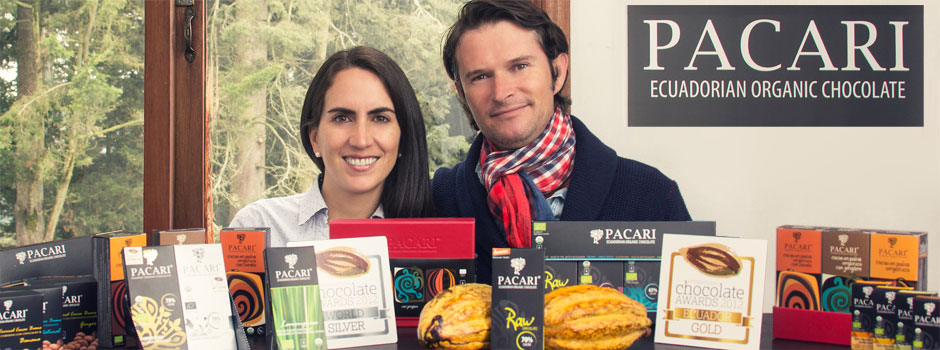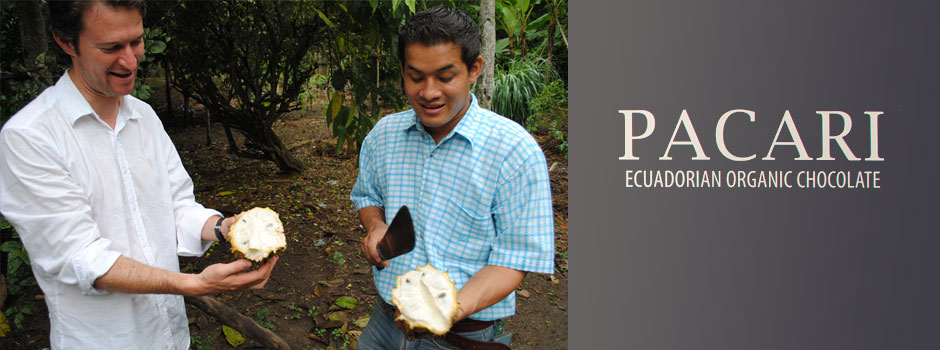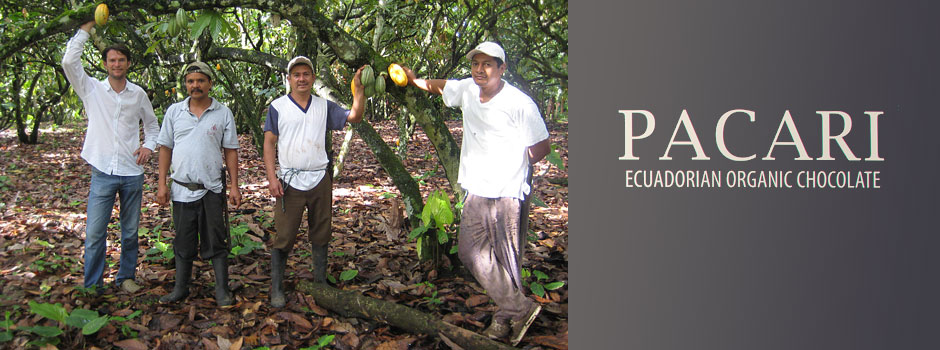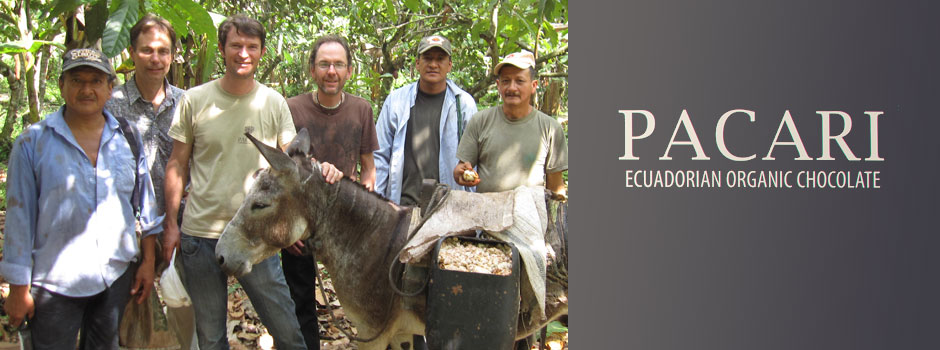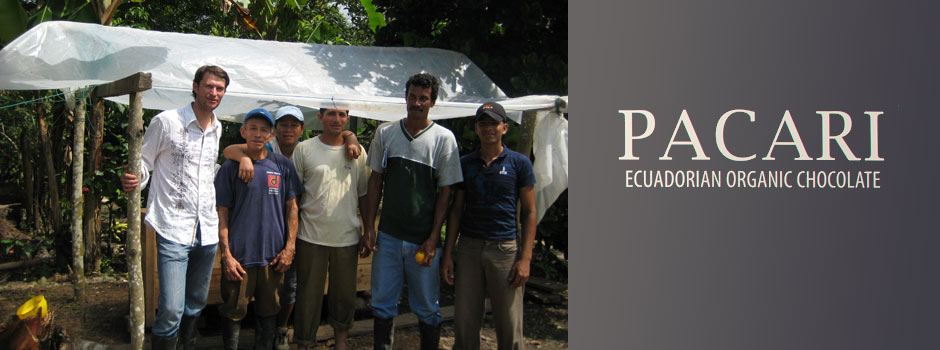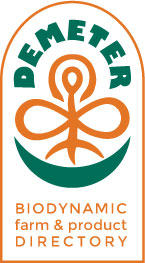“Healing people and the planet through agriculture”
Profiles in Farming
Santiago Peralta & Carla Barboto
Pacari Chocolate
While product quality and profitability should top the list of any company’s goals, more and more emphasis is being placed on environmental impacts and social responsibility. This is certainly true for many Biodynamic producers and we can’t think of a better exemplar than Demeter member Pacari Chocolate.
With five gold and one silver medal from the prestigious International Chocolate Awards last year, one could understand if this Ecuadorian chocolate producer rested on its laurels. After all, Pacari is an internationally recognized chocolate authority appreciated by chocolate connoisseurs and consumers worldwide, exporting 600,000 chocolate bars annually to more than 30 countries. But this world-class chocolate processor and producer is also laser-focused on social mission goals. Â
Pacari was co-founded by Santiago Peralta and Carla Barboto 10 years ago. Not farmers themselves, Santiago and Carla act as farm advocates and partners for their 3,000 growers. There are a number of ways that Pacari works within their farming communities to help their farmers, their families, and their communities preserve and enhance their environment and their way of life. Partnering directly with these small-scale cacao growers helps maintain their traditional way of farming, and safeguards the biodiversity of cacao in Ecuador. They educate their farmers to have a holistic approach to the land that considers plants, soil, insects, birds, and other pollinators. But the farmer, too, is part of the whole, and Pacari recognizes and honors this dynamic by establishing schools, developing computer literacy programs, and offering training in organic and Biodynamic methodologies.
Economic sustainability is the foundation of success, and Pacari helps contribute to the sustainability of their farmers by cutting out the middleman. Pacari pays and educates its growers directly, which allows them in turn to pay their farmers more and educate them more fully. In all, Pacari estimates that it helps to support some 20,000 Ecuadorans, and they can proudly make the claim that their premium Biodynamic chocolate is created “from tree to bar”—the first single-origin Biodynamic and organic chocolate made entirely in Ecuador.
In 2013, Santiago became the first person from Latin America to be named "Outstanding Chocolate Maker" by the Fine Chocolate Industry Association. We recently caught up with Santiago, 42, via email to learn more about Pacari's social justice mission.
Q: Why spend so much to train and advocate for your farmers?
A: When we started Pacari more than 10 years ago we quickly saw it was the person at the bottom of the chocolate production chain—the farmer—who was getting the worst of the deal. We wanted to do something about that. As one of the few companies in the world that makes chocolate entirely in a cacao producing country—from tree-to-bar, as we like to say—it is important to Pacari that the financial fruits of this labor not only stay in Ecuador, but also get to the farmers.
Q: How have your social mission practices impacted your farmers?
A: We are constantly working with our 3,000 independent small farmers to help them improve their production—teaching about the Biodynamic process, for example—and to prevent loss, waste, and ensure they get the best price possible for their cacao. For example, small actions on our part, such as building simple drying sheds that groups of small farmers can use cooperatively, means they no longer need to bring their cacao to expensive middlemen for drying. Another innovation was reducing the size of the burlap bags the cacao industry in Ecuador has used for over a century, from 50 kilos (110 pounds) to 25 kilos. This simple act has allowed women farmers to become more actively involved in what was a male-dominated harvest. And, as we have seen around the world, when women become empowered in the small farming economy, living standards improve.
Q: You also pay more for your beans than most companies would. Where's the profit in that?
A: Not only are Pacari chocolates unique in that they are Biodynamic, we have also upended the industry in the region by paying substantially more for our fine cacao, often more than double the asking price. We do this not just because it is the right thing to do for our partners—the farmers—but also because it is good business. By paying more we can guarantee our farmers are loyal to Pacari and that the very best of their cacao comes to us first.
Learn more: www.pacarichocolate.com
“When we started Pacari more than 10 years ago we quickly saw it was the person at the bottom of the chocolate production chain—the farmer—who was getting the worst of the deal. We wanted to do something about that. ”
- Santiago Peralta
Pacari Chocolate
---------------------
Previous Profiles in Farming
- Lone Willow Ranch
- Sustainable Settings
- Spring Planting
- Biodynamic Dairies
- Santiago Peralta & Carla Barboto
- Stephen & Gloria Decater
- Stephen & Bill Steele
- Deb Soule
